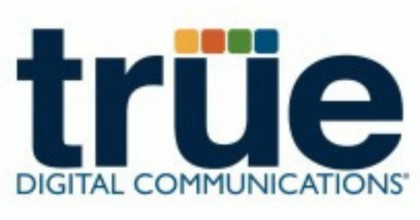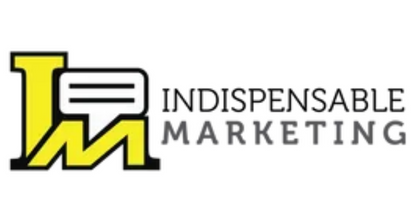
Top Healthcare App Development Companies
The global healthcare mobile application market was valued at USD 114.06 billion in 2024 and is projected to reach USD 4,710.54 billion by 2034, growing at a 45.1% CAGR.
Explore the leading healthcare app development companies that deliver innovative, secure, and scalable digital health solutions. These companies specialize in building HIPAA-compliant apps for telemedicine, fitness tracking, mental health, remote patient monitoring, and electronic health record (EHR) integration. Whether you’re a startup or a large healthcare provider, these experts help transform your ideas into powerful mobile and web applications. Backed by user-centric design, seamless functionality, and compliance with healthcare regulations, these agencies ensure better patient engagement, clinical efficiency, and improved health outcomes. Compare top-rated firms based on reviews, expertise, services, and pricing to find your ideal development partner.
List of the Best Healthcare App Developers | Top Healthcare App Development Companies in the World

-
Employees: 2 to 10
-
Min. Project amount: $25000
-
Country: U.S.A
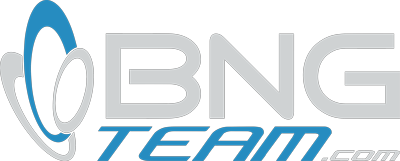
BNG Design
-
Employees: 51 to 200
-
Min. Project amount: $25000
-
Country: U.S.A

Ad Monkeys
-
Employees: 2 to 10
-
Min. Project amount: $25000
-
Country: U.S.A
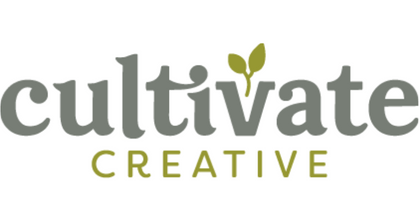
Cultivating Creative
-
Min. Project amount: $25000
-
Country: U.S.A
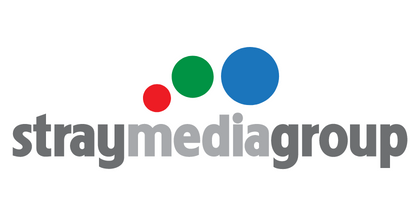
Stray Media Group
-
Employees: 2 to 10
-
Min. Project amount: $25000
-
Country: U.S.A
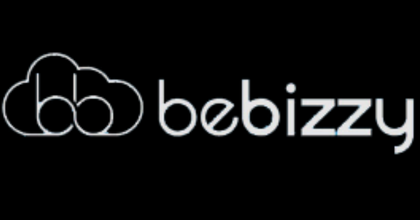
BeBizzy
-
Min. Project amount: $25000
-
Country: U.S.A
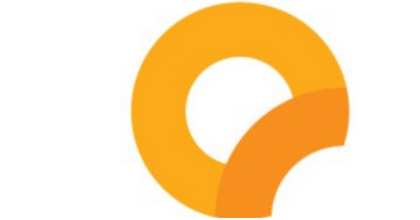
Oliver Russell
-
Employees: 11 to 50
-
Min. Project amount: $25000
-
Country: U.S.A
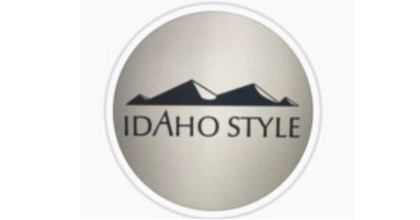
Idaho Style
-
Employees: 2 to 10
-
Min. Project amount: $25000
-
Country: U.S.A
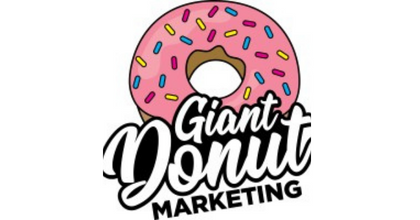
Giant Donut Marketing
-
Employees: 2 to 10
-
Min. Project amount: $25000
-
Country: U.S.A
-
Employees: 11 to 50
-
Min. Project amount: $25000
-
Country: U.S.A
1.What is a healthcare app development company?
A healthcare app development company is a technology firm dedicated to designing, developing, and deploying mobile and web-based applications for the healthcare sector. Their expertise lies in understanding the intricacies of healthcare workflows, regulatory compliance (such as HIPAA and GDPR), and the critical need for data security and patient privacy. These companies work with a diverse clientele, including hospitals, clinics, individual medical practitioners, pharmaceutical companies, and patients themselves.
Specialized Digital Solutions
These companies build a wide array of applications designed to streamline healthcare processes, improve patient outcomes, and enhance communication. Examples include:
- Telemedicine Apps: Enabling virtual consultations, remote diagnostics, and follow-up care.
- EHR/EMR Systems: Digitizing and managing patient medical records for efficient access and collaboration.
- Appointment Scheduling Apps: Simplifying the process of booking and managing medical appointments.
- Health and Wellness Tracking Apps: Empowering patients to monitor their vital signs, fitness levels, and medication adherence.
- Remote Patient Monitoring (RPM) Apps: Facilitating continuous monitoring of patients’ health conditions from a distance.
- Medical Education and Training Apps: Providing interactive learning tools for healthcare professionals and patients.
By focusing specifically on the healthcare domain, these development companies possess the necessary knowledge and experience to navigate the complexities of the industry and deliver innovative, secure, and user-friendly digital health solutions.
2.What features should a healthcare app include?
Essential Features of a Robust Healthcare App
A well-designed healthcare app integrates several key features to provide value to users while adhering to stringent industry standards. Here are some essential components:
Core Functionality and User Engagement
- Secure User Authentication: Robust security measures, including multi-factor authentication and encryption, are paramount to protect sensitive patient data and ensure privacy.
- User Profiles and Management: Allowing users (patients, doctors, administrators) to create and manage their profiles securely, with role-based access control to relevant features and information.
- Appointment Scheduling: A user-friendly interface for patients to book, reschedule, and cancel appointments, often with calendar integration and automated reminders.
- Communication Tools: Secure in-app messaging and video consultation capabilities for seamless interaction between patients and healthcare providers.
- Health Monitoring Tools: Features for tracking vital signs, medication adherence, activity levels, and other relevant health data, potentially integrating with wearable devices.
- Push Notifications and Reminders: Timely alerts for appointments, medication intake, follow-up care, and important health-related information to improve adherence and engagement.
- Educational Resources: Access to reliable health information, articles, FAQs, and personalized content to empower patients with knowledge about their conditions and treatment plans.
Data Management and Interoperability
- Electronic Health Record (EHR) Integration: Seamless integration with existing EHR systems to allow for secure access and exchange of patient medical history, test results, and treatment plans.
- Data Visualization and Reporting: Clear and concise presentation of health data through charts, graphs, and summaries to help both patients and providers understand trends and progress.
- E-Prescription Capabilities: Securely transmitting prescriptions to pharmacies, improving efficiency and reducing errors.
Compliance and Security
- Regulatory Compliance: Adherence to relevant healthcare regulations such as HIPAA (in the US), GDPR (in Europe), and other local data privacy laws is non-negotiable. This includes data encryption, access controls, and audit trails.
- Data Security and Privacy: Implementing stringent security protocols to protect patient data from unauthorized access, breaches, and misuse.
- Audit Logs: Maintaining detailed records of user activity and data access for security and compliance purposes.
Advanced and Emerging Features
- AI-Powered Chatbots and Virtual Assistants: Providing instant support, answering common queries, and guiding users through app features.
- Remote Diagnostics and Monitoring: Integration with medical devices for remote health assessments and continuous monitoring of chronic conditions.
- Location-Based Services: Features like finding nearby pharmacies or clinics.
- Payment Gateway Integration: Securely processing payments for consultations or other healthcare services.
- Multilingual Support: Catering to a diverse user base by offering the app in multiple languages.
- Accessibility Features: Designing the app to be usable by individuals with disabilities, adhering to accessibility guidelines.
The specific features included in a healthcare app will depend on its target users, intended purpose, and the specific needs it aims to address within the healthcare ecosystem. However, security, user-friendliness, and compliance are always paramount.
3.How much does it cost to develop a healthcare app?
It’s true that the cost to develop a healthcare app varies significantly based on its complexity and the features it includes. Your provided estimates offer a good starting point, but let’s elaborate on the factors that influence these costs:
Factors Influencing Healthcare App Development Costs:
Complexity and Features: This is the most significant factor.
Basic Apps ($20,000 – $60,000+): These typically include essential features like user profiles, appointment scheduling, basic health tracking (e.g., manual data entry), and perhaps medication reminders. They have a simpler UI/UX design and fewer integrations. Examples include basic appointment booking apps or simple medication reminder apps.
Advanced Apps ($100,000 – $300,000+): These are highly sophisticated applications that may include advanced AI diagnostics, integration with a wide range of wearables and IoT medical devices, blockchain for secure data management, real-time remote patient monitoring with alerts, complex data analytics, and personalized treatment recommendations. They demand expertise in cutting-edge technologies and rigorous compliance protocols. Examples include AI-powered diagnostic tools or comprehensive remote patient monitoring platforms.
Platform (iOS, Android, or Cross-Platform): Developing native apps for both iOS and Android will generally cost more than developing for a single platform initially. Cross-platform development (using frameworks like React Native or Flutter) can sometimes be more cost-effective for reaching both platforms but might have limitations in certain functionalities.
UI/UX Design: The complexity and sophistication of the user interface and user experience design significantly impact the cost. A basic, user-friendly design will be less expensive than a highly interactive and visually appealing one with custom animations and branding.
Backend Development: The complexity of the backend infrastructure required to support the app’s functionality, data storage, security, and scalability will affect the cost. Features like real-time data processing and integration with multiple systems increase backend complexity.
Third-Party Integrations: Integrating with external systems like EHRs, payment gateways, mapping services, or other healthcare APIs adds to the development effort and cost.
Compliance and Security: Healthcare apps must adhere to stringent regulations like HIPAA (in the US) or GDPR (in Europe). Implementing the necessary security measures, encryption, access controls, and audit trails to ensure compliance adds significant development time and cost. Legal consultations and security audits may also be required.
Development Team Location and Expertise: The geographic location and experience level of the development team can significantly influence hourly rates. Developers in North America and Western Europe typically have higher rates than those in Eastern Europe or Asia
Testing and Quality Assurance: Thorough testing is crucial for healthcare apps to ensure accuracy, reliability, and security. Comprehensive testing across different devices and scenarios adds to the overall cost.
In summary, while your initial cost ranges provide a general idea, the actual cost of developing a healthcare app is highly dependent on the specific requirements and complexities of the project. It’s essential to have a detailed understanding of the desired features, necessary integrations, and compliance requirements to get a more accurate cost estimate from a healthcare app development company
4.How long does it take to build a healthcare app?
Development typically takes 12 to 28 weeks, depending on the scope, number of features, platform (iOS/Android), and compliance requirements.
That’s a reasonable estimate for the typical timeframe for healthcare app development, and you’ve rightly highlighted the key factors that influence the duration. Let’s break down those factors and elaborate on the timeline:
Factors Influencing Healthcare App Development Timeline:
Scope and Complexity of Features: This is the most significant determinant of the development timeline.
- Basic Apps: With a limited set of core features like secure login, basic profiles, appointment scheduling, and perhaps simple health tracking, development can take 3 to 6 months (approximately 12 to 24 weeks).
- Mid-Level Apps: Incorporating features like EHR integration, video consultations, in-app payments, more complex health monitoring, and basic AI chatbots will extend the timeline to 6 to 9 months (approximately 24 to 36 weeks) or even longer.
- Advanced Apps: Developing sophisticated applications with advanced AI diagnostics, extensive wearable integration, blockchain technology, real-time remote patient monitoring, and complex data analytics can take 9 months to 18+ months (approximately 36 to 72+ weeks).
Number of Features: As the quantity of features increases, so does the development time required for design, coding, testing, and integration.
Platform (iOS and/or Android): Developing native apps for both iOS and Android concurrently will roughly double the development effort compared to building for a single platform initially. Cross-platform development can sometimes offer a faster initial launch on both platforms but might require more effort for platform-specific optimizations.
UI/UX Design Complexity: A simple and straightforward UI/UX design will take less time than a highly customized and interactive design with intricate animations and user flows.
Backend Development Complexity: The architecture and complexity of the backend infrastructure needed for data storage, security, scalability, and integrations will directly impact the timeline.
Third-Party Integrations: Integrating with external systems like EHRs, payment gateways, and other healthcare APIs can introduce dependencies and require additional time for implementation and testing.
Compliance Requirements: Ensuring adherence to stringent healthcare regulations like HIPAA (in the US) or GDPR (in Europe) involves meticulous planning, implementation of security measures, and thorough testing, which can add several weeks to the development cycle.
Development Team Size and Expertise: A larger and more experienced development team can potentially expedite the process, but coordination and communication also become crucial.
Testing and Quality Assurance: Comprehensive testing at various stages of development is essential for healthcare apps. Thorough testing across different devices, operating systems, and scenarios takes time but is critical for ensuring reliability and security.
Regulatory Approvals (if required): Depending on the specific functionality and intended use of the healthcare app (e.g., for medical diagnosis or treatment), obtaining necessary regulatory approvals can add significant time to the overall process.
In conclusion, your estimate of 12 to 28 weeks is a good general range for many healthcare app projects, particularly those with a basic to mid-level complexity. However, it’s crucial to have a detailed project scope and clearly defined features to get a more accurate timeline from a healthcare app development company. Complex and highly regulated apps will naturally require a more extended development period
Frequently Asked Question
What is software development?
In simple words, software development refers to a planned process of creating computer programs using specific programming languages. The process with the set stages and steps for development includes software designing, development, software testing, and deployment. It has to abide by the standard software development lifecycle parameters (known as SDLC). The aim here is to address a distinct business goal through a logical set of functions.
What is the average cost of developing custom software?
There are various factors that decide the cost of custom software. Different regions have different developer work hour rates. However, the basic cost of custom software development is around $20,000-$25,000.
What are the payment models?
Pricing policies vary from one company to another. Most custom software development costs are billed in installments as the development life cycle stages come to an end. Often companies offer a fixed price that comes in a package including additional charges after post-launch.

